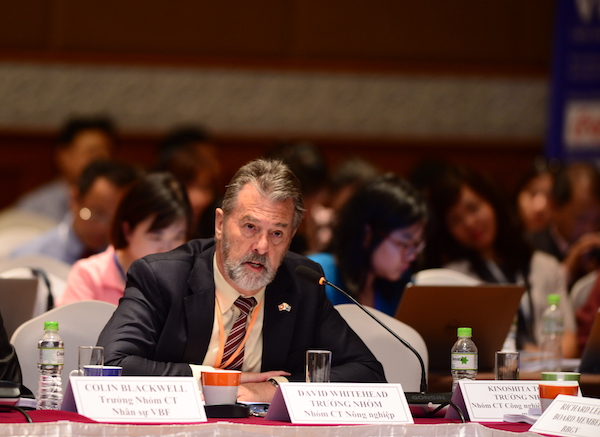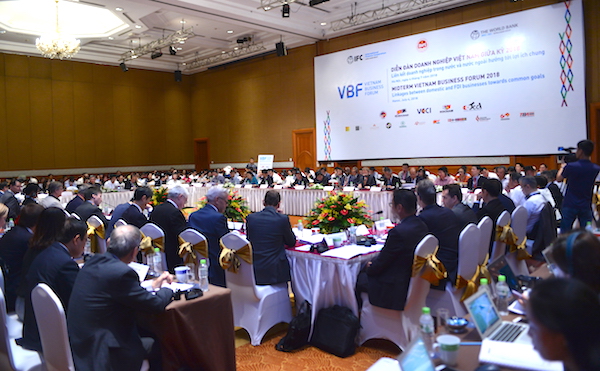The face and nature of Agriculture has changed, both internationally and in Vietnam. The size of holdings, together with farmer’s knowledge, use of technology and markets have moved agriculture from a family activity to a business enterprise.

The face and nature of the Vietnamese farmer has also changed, no longer a poor, en-educated rural land holder; today’s farmer is a businessman with large holdings, significant investment and understanding of technology and international markets – the Smart farmer of today not only fully understands his or her physical environment, but can actually change it with technology.
We believe that the application of IT and high technology solutions in agriculture is valuable, effective and makes great business sense. In these days of increasing consumer awareness about food cleanliness, hygiene and traceability, it is imperative for agribusinesses to do all they can to have processes and systems that are reliable, efficient and safe. Also, in order to operate in the international market place, modern farmers must meet international standards of growing and breeding, use of pesticides, herbicides and other inputs, handling, packaging, storage, transport and supply chains. This cannot be achieved without sophisticated advanced technology systems,
Sustainable agriculture must simultaneously deliver food security, environmental sustainability and economic opportunity.
In order to achieve those goals there must be a transformation of the agriculture sector through a coordinated effort by all stakeholders, including farmers, government, civil society and the private sector.
The key success factors of agriculture-sector transformation at the national level include setting the right direction through effective leadership, strategy and investment models, and scaling the transformation through finance, infrastructure, institutions and monitoring.
The significant fluctuation in the selling price of pork meat in 2017 and early 2018 in Vietnam is a prime example of unplanned and ineffective market management, together with uncontrolled escalation of low quality animal feed manufacturers, and lack of price control. This example clearly shows the need for improvement in management of supply and demand, attention to markets both local and international, and government intervention to stabilise prices.
The Fourth Industrial Revolution (4IR) will see the convergence of artificial intelligence and data technology as a new solution to address industrial and social problems across the globe, by integrating cyber and physical fields.
The 4IR will have far-reaching repercussions for the labour-intensive field of agriculture. Combining artificial intelligence and big data will evolve into a high-tech industry that operates itself. For example, use of camera drones and GPS position locators managed by technologically advanced control systems will allow Smart farmers to make smart decisions about crop management, livestock movements and feeding and watering. These technologies allow for precision agriculture, such as yield monitoring, diagnosing insect pests, measuring soil moisture, making decisions about harvest time, and monitoring crop health status. In particular, the Internet of things (IoT) will measure temperature, humidity, and amount of sunlight in production farms, making it possible for remote control via mobile devices. It will not only boost the production of farms, but also add to their value.
By applying 4IR technology, comprehensive data (including agricultural production, climate information, population structure, and consumer data) can be analyzed comprehensively. In this way, it is possible to produce customized products to optimize supply and demand. At the same time, the government can adjust timing and output in order to stabilize prices.
Just as the first, second, and third industrial revolutions did, the emergence of new technologies achieved via revolution always begins with the break-down of an existing order. Breaking the existing order creates a gap in which opportunities can emerge. The 4IR technology in farming presents a great opportunity to increase agricultural competitiveness, and an opportunity to overcome the structural weaknesses of the current agricultural system and the limits of intensive agriculture.
Ladies and gentlemen we are at the beginning of a new agricultural age. An age where Smart farmers can control their environment, their product and their market like never before, with the use of technology and systems that provide data, information and knowledge so that Smart farmers can make smart decisions about what and when to plant, grow, harvest and send to market.
We seek the government’s support of this agricultural transformation, through effective leadership and legislation to allow Vietnam to become an agricultural powerhouse driven by Smart farming and Smart farmers.

This is the full speech of Mr. David John Whitehead, Chairman of the Mavin Group, as the head of the agribusiness working group at Vietnam Business Forum (VBF) on 4 July, 2018 in Hanoi. The forum is an important dialogue between businesses and the government, organized by VCCI, the World Bank (WB) and the International Finance Corporation (IFC).